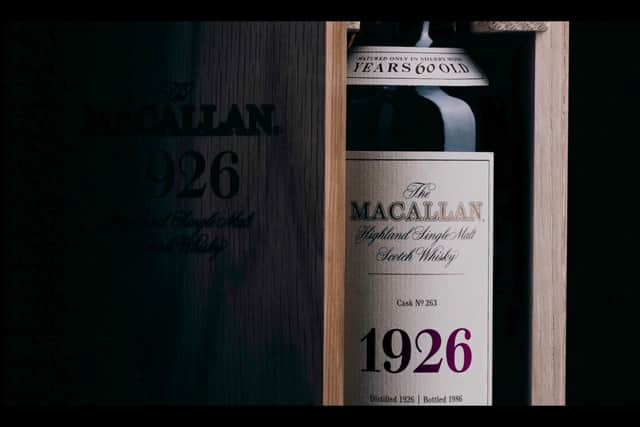Investing in Whisky: A comprehensive guide for enthusiasts and investors in Glasgow


FREE GUIDE: Don’t panic. You don’t need to know your peat from your grain to trade in casks. Download your free guide from Whisky Partners - CLICK HERE.
This surge in popularity was dramatically highlighted when a bottle of 1926 Macallan was sold for a staggering 1.5 million at a Sotheby's auction, setting a new world record.


But what does this mean for the average investor?
Is whisky a viable and profitable avenue for investment?
We delve deep into the world of whisky investments, dissecting the pros and cons, and providing an in-depth analysis to guide both new and seasoned investors.
Is Whisky a Viable Investment Option?
Whisky stands out as a tangible asset that has consistently demonstrated an increase in value over time. Particularly, aged whiskies from renowned distilleries have been known to fetch high prices, maintaining their value resilience even during economic recessions and inflationary periods.
The last decade has seen whisky outperform several other luxury investments, such as classic cars, first-growth Bordeaux wines, or collectible timepieces. The Knight Frank Luxury Investment Index reported a remarkable 586% price growth for certain single malt bottles over the decade leading up to 2020.
Often referred to as a 'safe haven asset' or 'liquid gold', whisky's market value seems impervious to the ups and downs of the larger economy. This stability is further reinforced by cultural shifts, especially in countries like India and China, where premium whisky is increasingly regarded as a symbol of affluence and sophistication.
However, it's not just the wealthy driving the whisky market boom. Millennials across the globe are redefining the traditional image associated with whisky. The rise of online investment platforms has made it easier for this demographic to explore and invest in their passion for whisky.


The Pros and Cons of Whisky Investment
Pros:
1. Lucrative Potential: Some rare whisky casks have been known to sell for hundreds of thousands of pounds, making them a potentially profitable investment.
2. Growing Market: The market for rare and collectible whisky is on the rise, attracting investors looking for promising alternatives to stocks, shares, and real estate.
3. Tangible Asset: Whisky is a physical asset that can be stored, appreciated, and eventually sold.
4. Enjoyable Hobby: Many find joy in collecting and tasting whisky, making it an investment that doubles as a pleasurable pastime.
Cons:
1. Market Volatility: The value of whisky investments can fluctuate, influenced by various market factors.
2. Risk Factors: It can be challenging to predict which casks will appreciate in value.
3. High Entry Cost: Rare and collectible whiskies, particularly those in high demand, can be expensive to acquire.
4. Storage and Maintenance: Proper storage and care of whisky can lead to additional costs.
Understanding Whisky Cask Investment
Investing in whisky casks involves either directly engaging with distilleries or working through brokers who purchase and store casks in insured and bonded warehouses. These casks can later be sold to independent bottlers, auction houses, or directly to other investors.
When choosing to exit the investment, there are several options available. The cask can be sold in its entirety, or it can be bottled and then sold, potentially increasing its value.
Choosing the Right Whisky for Investment
When selecting a whisky for investment, consider the following factors:
1. Rarity: The scarcity of a cask, especially those from closed distilleries or those with unique characteristics, often drives up its value.
2. Age: Generally, older whiskies are more sought after due to their developed flavor profiles. However, this is not a hard and fast rule; some younger whiskies have also shown significant investment potential.
3. Investment Potential: Assess historical sales data and expert predictions to determine whether a particular whisky is likely to appreciate in value. Remember, the whisky market can be unpredictable, and various factors can impact a whisky’s value.
Expected Returns from Whisky Investment
The returns on whisky cask investments can vary widely. Some high-quality, rare casks have reportedly provided annual returns between 9% and 20%. However, these figures are historical and should not be seen as guarantees of future performance. Investing in whisky often requires a longer-term commitment, and as with any investment, there is no assurance of profit.
The Safety of Whisky Investments
Entering the whisky investment market should be done with caution and ideally under professional guidance. While the potential returns can be impressive, the online market for whisky investments is not immune to scams. It's crucial to be wary of deals that seem too good to be true or that promise unrealistic returns.
Investors should always verify the legitimacy of the whisky, ensuring it comes with proper documentation and from a reputable source. It's also important to understand the legal aspects of Scotch whisky cask ownership.